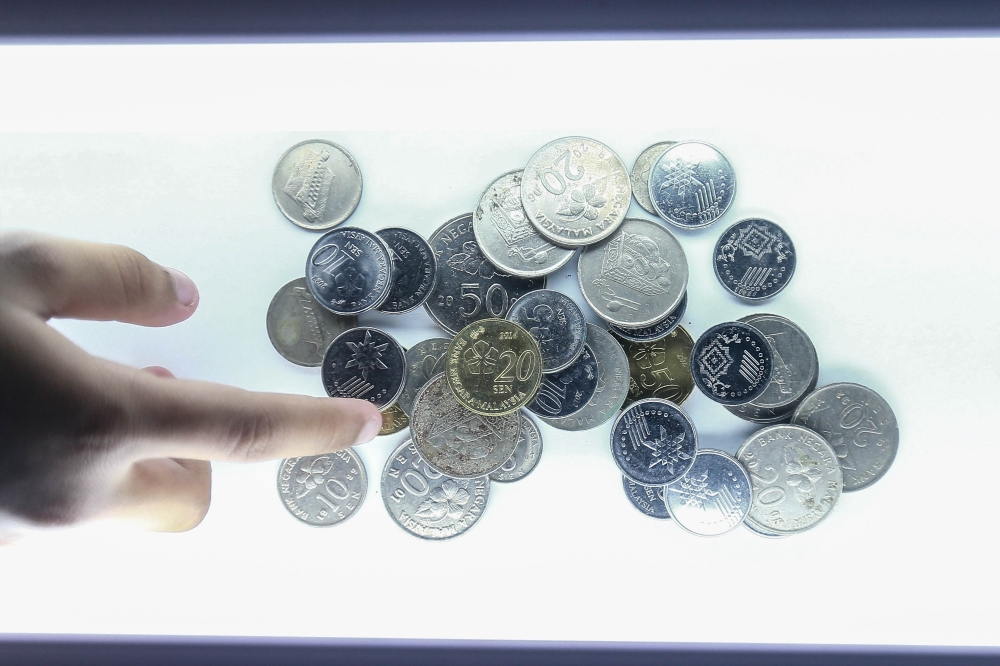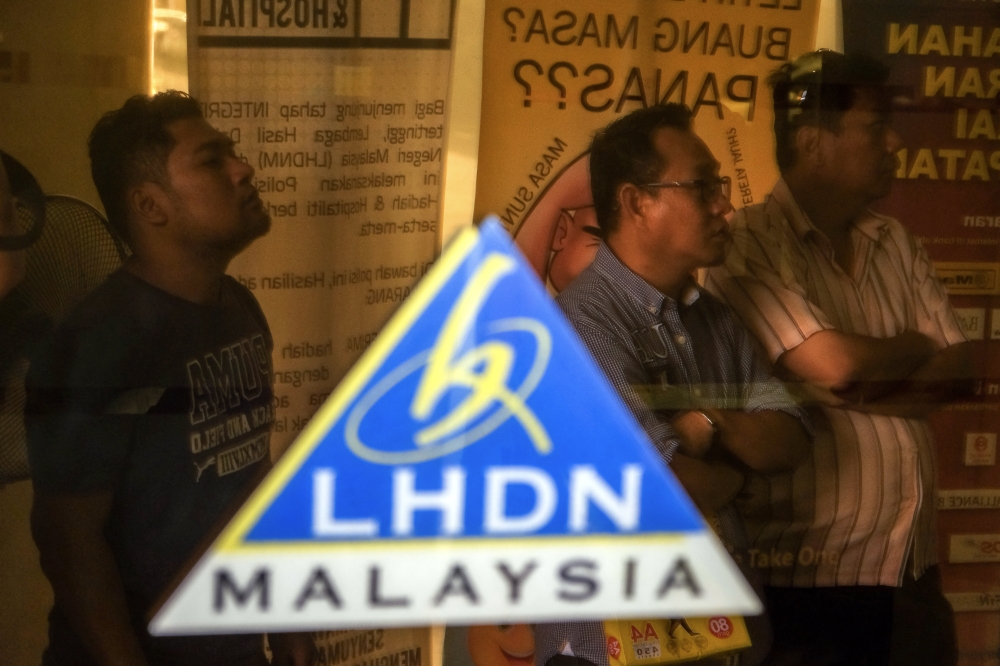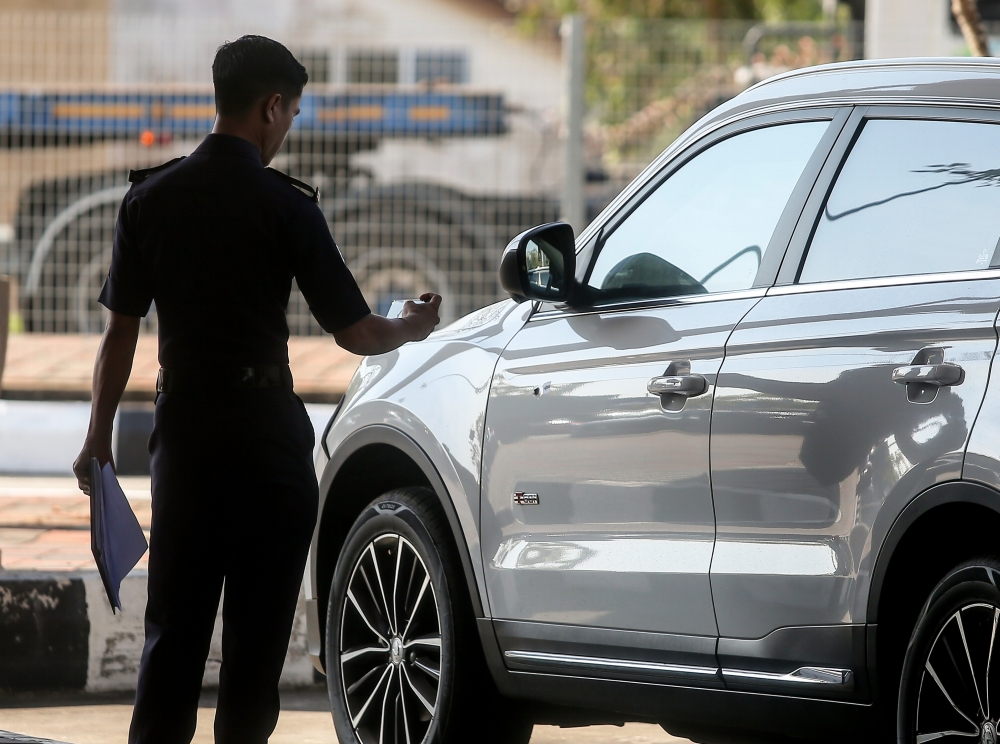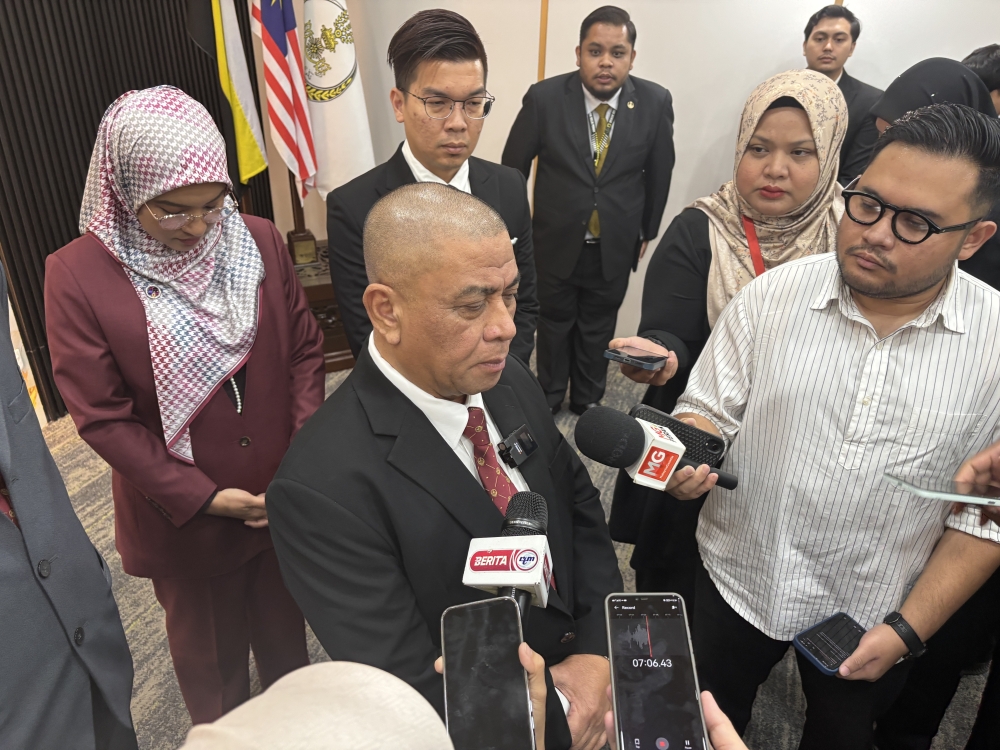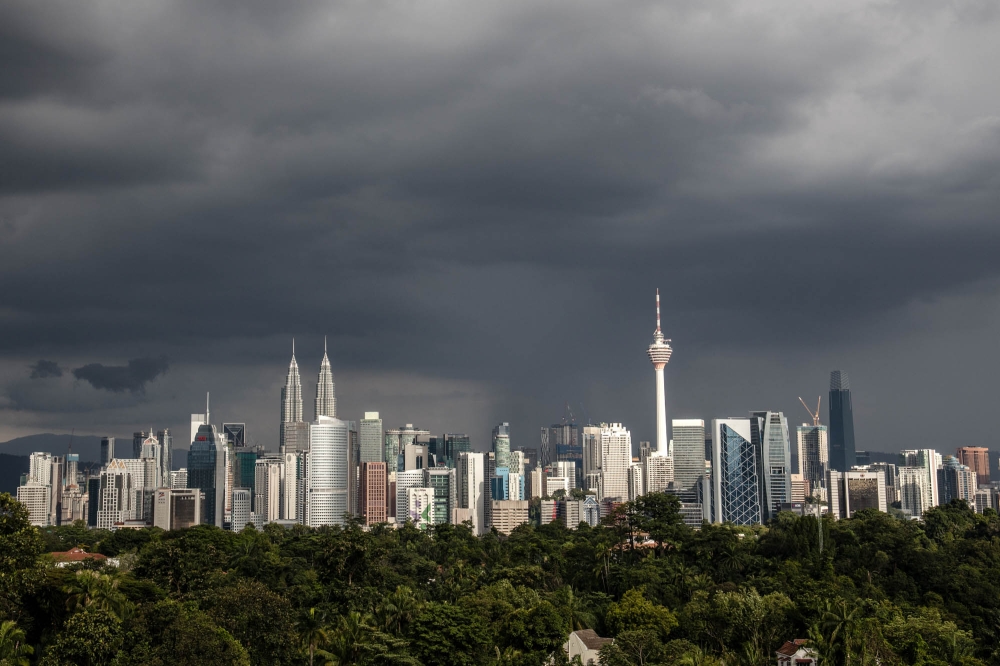KUALA LUMPUR, April 27 — A sizeable group of Malaysians polled remained sceptical of the climate crisis with four in 10 saying now is not the right time to focus on climate action as economic conditions are tough, according to a new Ipsos poll for Earth Day 2023.
In the survey by the market research firm, 32 per cent of respondents said changing their own behaviour to tackle climate change won’t make any difference while 33 per cent said it is too late to act now as climate change is beyond their control.
“Earth Day 2023 is marked by over half of Malaysians, who believe their country should do more to tackle climate change. In the fight against climate change, Malaysians feel that the government, businesses, and citizens must equally share this burden.
“However, many Malaysians feel that the price they are being asked to pay is not proportionate, the climate change threat is not urgent, or it is too late, and that economic conditions are unsuitable for such investment,” said Ipsos Public Affairs senior research manager Azamat Ababakirov in an accompanying press release.

This comes as 40 per cent of respondents said that Malaysia is “being asked to sacrifice too much" to tackle climate change.
More than half of Malaysians polled believed the responsibility to tackle climate change should be shared equally among the government, businesses, and citizens.
Malaysians believed more action should be taken in addressing climate change even though 51 per cent believed the country leads in climate change.
The survey found that if no immediate action is taken 68 per cent said that the government will be failing its people.
Meanwhile, 59 per cent of the respondents said the business will be failing its employees and customers and 63 per cent said that the individuals will be failing future generations.

The firm also identified 13 impactful actions for reducing emissions and the respondents perceive specific actions to have a more significant impact than others.
“Malaysians perceive specific actions as having a far more significant impact on reducing emissions than reality, such as recycling, less packaging, and growing or producing their own food.
“However, other actions, such as buying fewer or more durable items and living car-free, are not widespread, despite their effectiveness in reducing emissions,” Ababakirov said.
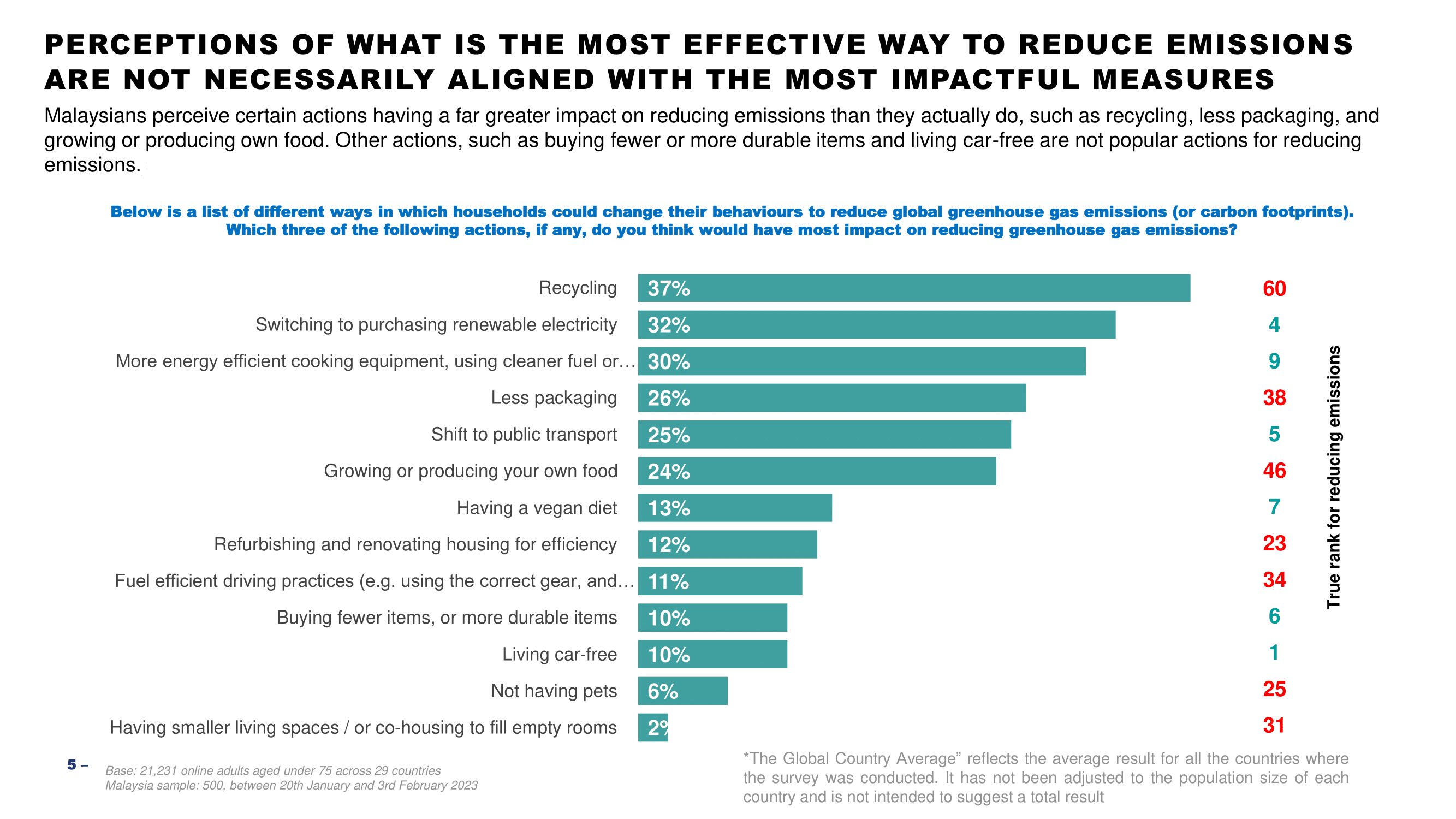
Ababakirov said that if Malaysians better understand which individual actions can have the greatest impact on climate change, they may be more motivated to take an active role in fighting it.
Ipsos said a total of 21,231 adults aged under 75 from 29 countries participated between January 20 to February 3 for this online survey.

